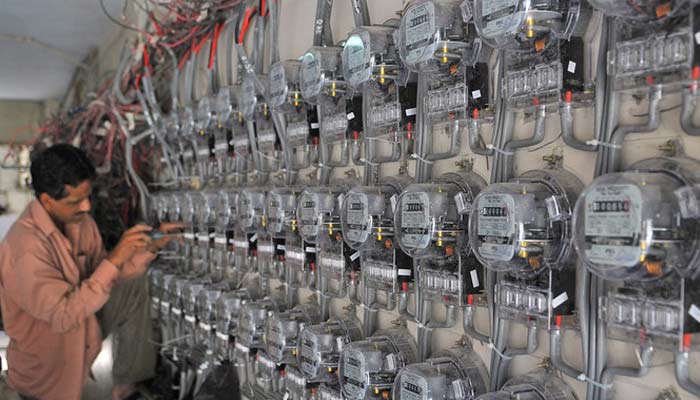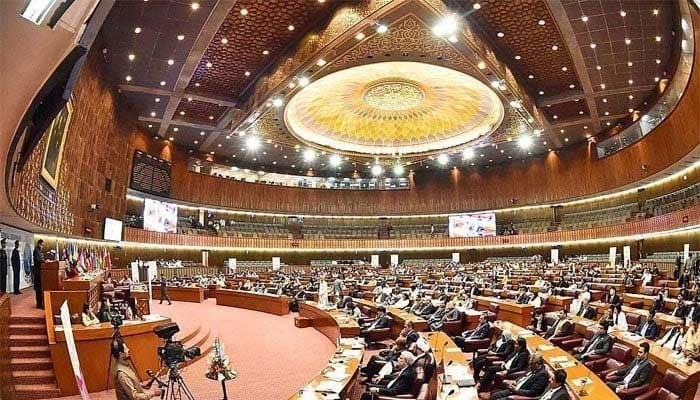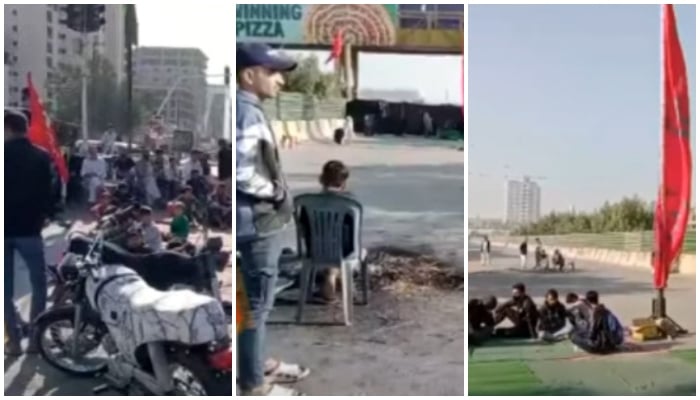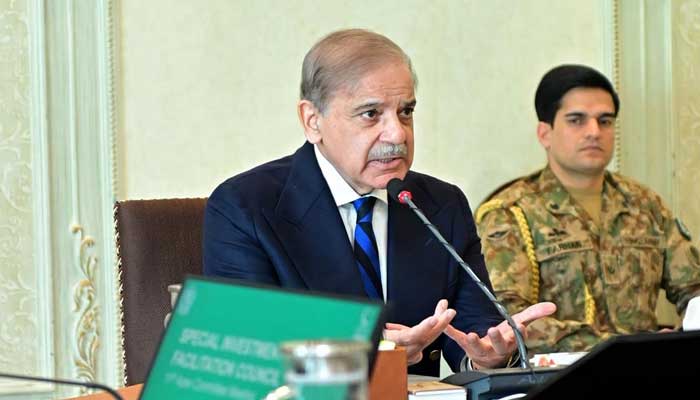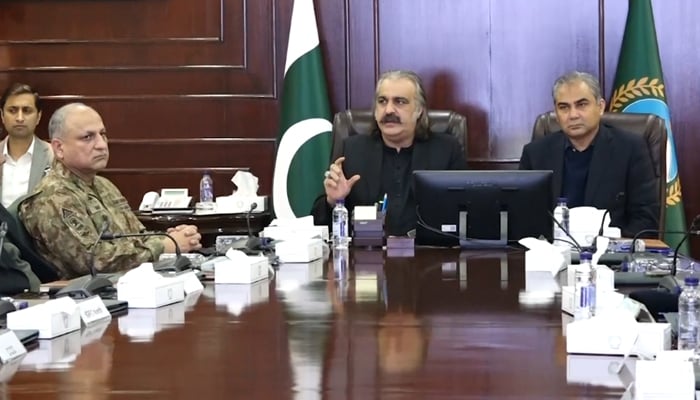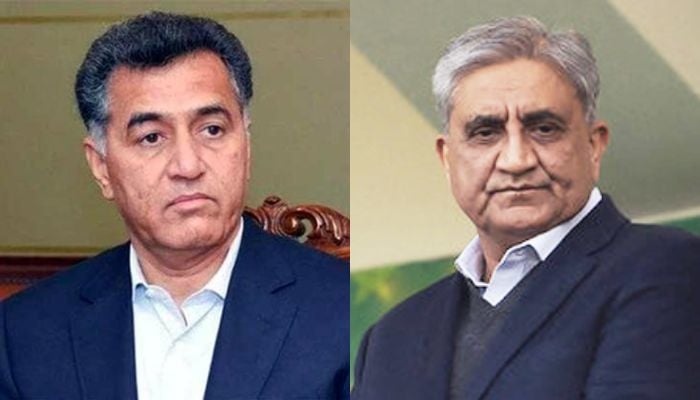First convoy to pass through Tal-Parachinar road today after three-month closure
Convoy comprising over 75 vehicles to deliver essential items to crisis-hit Kurram district
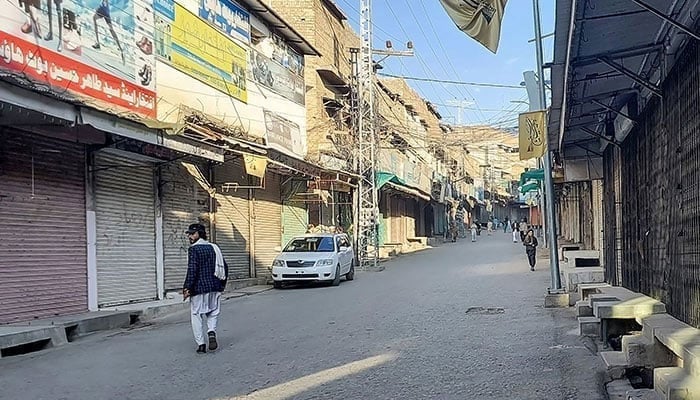
- Convoy to deliver wheat, medicines, oil and other items to Parachinar.
- Police and Frontier Corps deputed for providing security to convoy.
- KP chief secy says peace committees will ensure protection of convoy.
The first convoy carrying essential items will pass through the Tal-Parachinar road today (Saturday) as the key thoroughfare reopens after three months, marking a significant milestone in restoring connectivity to the crisis-hit region.
The convoy departing from Chapri, Tal, shortly will deliver vital goods including medicines, oil, wheat, and other food items to Parachinar under tight security ensured by police and Frontier Corps (FC).
KP Chief Minister’s Adviser Barrister Saif, who reached Kohat last night, would see off the convoy comprising 75 heavy vehicles.
Kohat commissioner, deputy inspector general and police officials are also accompanying Barrister Saif.
Earlier, Khyber Pakhtunkhwa Chief Secretary Nadeem Aslam Chaudhry stressed that peace committees will ensure the protection of the convoy and adherence to the agreements in place. These committees, comprising local residents, tribal elders, and political leaders representing all sects and communities, are tasked with maintaining harmony in the area, he said.
The official said that passenger vehicles are also expected to resume operations in convoy form over the next few days.
Government sources revealed that local residents have pledged to surrender their weapons to the state within 15 days, as part of a phased process, while the dismantling of local bunkers is expected to be completed within a month.
The reopening of the highway is a significant step towards restoring normalcy in the region, ensuring the uninterrupted flow of goods and strengthening communal peace.
The two warring tribes in Kurram finally reached a consensus and signed a peace agreement last week after days-long negotiations. The agreement follows a grand jirga held in Kohat, where 50 sessions were conducted to reach a consensus. All parties played a pivotal role in the peace pact, which aims to restore stability in the conflict-hit region.
The accord containing 14 points aimed at establishing peace in the area as violence plagued the restive territory for several weeks, was signed by 45 members of each party, Jirga member Malik Sawab Khan said.
The KP government has announced that any party resorting to aggression in the Kurram district will be treated as terrorists once the existing bunkers are dismantled.
Barrister Saif said on Friday that as per the Apex Committee’s decision, Kurram will be cleared of arms and bunkers to ensure long-term peace.
The KP’s top body had last month decided to dismantle all private bunkers in the Kurram district as part of efforts to restore peace in the region.
Kurram crisis
Kurram, a district of more than 600,000 residents near Pakistan’s border with Afghanistan, has long been a hotspot for sectarian violence.
Despite multiple truces announced over the past year, the issue remained unresolved, with tribal elders continuing efforts to negotiate a permanent peace agreement.
Recent months have seen escalating tensions, with clashes since July to date leaving over 200 people dead.
The clashes that erupted in November exacerbated a humanitarian crisis in the district, with medicine and oxygen supplies running critically low due to the prolonged closure of the main highway linking Parachinar to Peshawar.
Reports suggest that over 100 children may have died from a severe shortage of medicine, though Khyber Pakhtunkhwa government spokesperson Barrister Saif has denied these claims.
In addition to the ongoing sit-in at the Parachinar Press Club, the road closures have sparked protests in Karachi, now in their ninth day. On Monday, a separate protest was staged in Bagan, in the lower part of Kurram, against damage to shops and homes in the area.
Protesters demanded the reopening of roads and assistance for affected individuals. However, district administration officials cited security concerns, including recent firing on passenger vehicles and tribal clashes, as the reason for the closures.
The district was declared “disaster-hit” by the provincial government with authorities airlifting medical supplies to the area and evacuating people in critical need.
Underscoring that a consensus has been reached on all major points, Barrister Saif had said that bunkers would be abolished and the area would be de-weaponised as per the Apex Committee’s decision.
He reaffirmed the government’s resolve to achieve a permanent and sustainable solution to the conflict dating back more than a century.


